I have routes like that:
router.get('/:projectid/, (req, res) => {
testCase.getTestCaseDetail(req.params.projectid, req.params.testcaseid, req.params.snapshotId).then(testcaseData => {
res.render('testCaseService', {
title: 'Page',
testcase: testcaseData,
layout: 'project_layout',
});
});
});
In the handler function, I have getTestCaseDetail function:
function getTestCaseDetail(projectId, id, snapshotId) {
let testCaseId = parseInt(id);
return new Promise(((resolve, reject) => {
return testCaseSchema.aggregate([
{ $match: { 'projectId': projectId, 'testCaseId': testCaseId } },
{
$lookup: {
from: snapshotInfoSchema.collection.collectionName,
localField: testCaseObj.SERVICE_ID,
foreignField: 'artifacts.id',
as: 'services',
},
},
{ $unwind: '$services' },
{
$match: {
'services.snapshot.id': snapshotId,
}
}
]).then(testCaseResult => {
resolve(addTestCasesV2(testCaseResult, snapshotId));
})
.catch(err => {
reject(err);
})
}));
}
and addTestCasesV2 function
const addTestCasesV2 = function (testcases, snapshotId) {
const result = [];
let serviceTypeMapping;
let serviceName;
let testCase = {
id: '',
testCaseId: '',
name: '',
serviceName: '',
serviceType: '',
modifiedAt: '',
testScripts: '',
snapshotId: '',
services: '',
inputs: [],
outputs: [],
};
let promiseInputResults, promiseOutputResults;
const testcasesList = lodash.map(testcases, (tc) => {
const artifacts = lodash.map(tc.services.artifacts, (art) => {
if (art.id === tc.service_id) {
serviceTypeMapping = art.processType.serviceTypeName;
serviceName = art.name;
if (!commonUtil.isUndefined(art.processParameters)) {
if (!commonUtil.isUndefined(art.processParameters.input)) {
promiseInputResults = lodash.map(art.processParameters.input, (ip) => {
let classId = commonUtil.getArtifactId(ip.classId);
return objectType.getObjectTypeByClassId(snapshotId, classId)
});
}
if (!commonUtil.isUndefined(art.processParameters.output)) {
promiseOutputResults = lodash.map(art.processParameters.output, (ip) => {
let classId = commonUtil.getArtifactId(ip.classId);
return objectType.getObjectTypeByClassId(snapshotId, classId)
});
}
}
testCase.id = tc.testCaseId;
testCase.testCaseId = tc.testCaseId;
testCase.name = tc.name;
testCase.serviceName = serviceName;
testCase.serviceType = serviceTypeMapping;
testCase.modifiedAt = tc.modifiedAt;
testCase.testScripts = tc.testScripts;
testCase.snapshotId = snapshotId;
testCase.services = tc.services;
Promise.all(promiseInputResults).then(inputItems => {
return testCase.inputs = inputItems;
});
Promise.all(promiseOutputResults).then(outputItems => {
return testCase.outputs = outputItems;
});
}
});
});
return testCase;
};
The inputs/outputs is an list of item, like that: inputs:[ { name: "test1", type: "String" }, { name: "test2", type: "number" }, ]
I have a problem with promise lifecycle, this is the current flow 1. Routes 2. function getTestCaseDetail 3. resolve(addTestCasesV2(testCaseResult, snapshotId)); 4. addTestCasesV2 ==> return testCase but without go to 2 promise.all functions 5. resolve(addTestCasesV2(testCaseResult, snapshotId)); 6. Routes 7. go back 2 promise.all functions 8. end at return testCase.outputs = outputItems;
Please see the image to more detail flow (the white number is current flow, the orange number is my expect flow)

Please advice me. Many thanks.